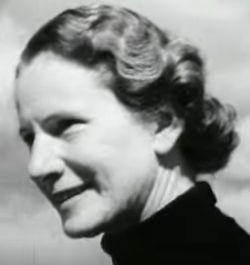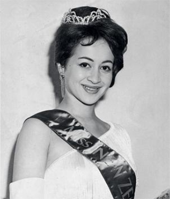Related Research Articles

Dame Gaylene Mary Preston is a New Zealand filmmaker with a particular interest in documentary films.

Ngā Taonga Sound & Vision is an archive that was launched on 31 July 2014, following the completion of a three-year process whereby the New Zealand Film Archive "absorbed" the collections and operations of the RNZ Sound Archives Ngā Taonga Kōrero in 2012 and the Television New Zealand Archive in 2014.

A Little Death is a 16mm short film that was created by Simon Perkins and Paul Swadel in 1995. The film was nominated for Best Short Film in the New Zealand Film and TV Awards in 1995. Its concept evolved from an earlier idea called 'Into The Void', which involve a male character walking in on his lover in bed with another. The interest of the idea centred on the ambiguity of the lover's gender, and by inference the sexual orientation of the observer.

Charles Turu Tumahai was a New Zealand singer, bass player and songwriter who was a member of several noted rock groups in New Zealand, Australia and the UK. He is best known internationally as the bassist and backing vocalist in Bill Nelson's Be-Bop Deluxe.
Richard Lush is a British-born Australian recording engineer and producer. He began his career in the mid-1960s as an assistant engineer at the EMI Abbey Road Studios in London.

Gisela Taglicht was a notable New Zealand rhythmical dance and gymnastics teacher.

Isabella Smith Andrews, known professionally as Isobel Andrews, was a New Zealand playwright, novelist, short-story writer and poet. She wrote over sixty plays, many of which were published, and was associated with the New Zealand branch of the British Drama League. She won the League's annual playwrighting competition four times. Her plays, particularly The Willing Horse, have continued to be performed into the 21st century.
Deane Waretini is a musician from New Zealand. He had a #1 chart hit in 1981 with the song "The Bridge", a Māori language song set to Nini Rosso's tune "Il Silenzio". He is also the son of a historically significant Maori baritone singer and recording artist. In later years, Waretini was featured in a New Zealand television production that was built around him.

Maureen Te Rangi Rere I Waho Waaka was Miss New Zealand 1962, the second Māori woman to win the title. She later became a local-body politician, serving on the Rotorua District Council for 18 years. Of Māori descent, she identified with the Ngāti Tūwharetoa and Ngāti Whakaue iwi.
Bunny Te Kokiri Miha Waahi Walters was a New Zealand singer who had a number of New Zealand hits during the 1970s. He is best known for the hits "Brandy" and "Take the Money and Run".

"Can't Get Enough" is a 1994 single from New Zealand funk rock band Supergroove. It peaked at number one in the New Zealand singles chart and later charted at 36 in Australia. The song was included on Supergroove's debut album Traction. Long-time TVNZ 2 continuity announcer Warren Thomas made a spoken cameo appearance part way into the song.

The Mauri Hikitia is a various artists album released in 1981. It reached no 4 on the New Zealand charts. It features Rhonda, Ken Kincaid, Deane Waretini, and the Lightwood family.
Ode Records is a New Zealand record label. Artists recordings released through the label include Herb McQuay, Deane Waretini. The first release on the label was a single in 1968, "Sally I Do" by Abdullahs' Regime. The label also became an important outlet for ethnic and world music, especially music from Melanesian and Polynesian sources.
Tony McCarthy Recordings was a New Zealand record label owned by record producer Tony McCarthy. Some of the artists on the label were Deane Waretini and Mahia Blackmore. The label is also a representation of the only released recordings by singer Abe Phillips who was killed in an accident in 1971.
Mahia Blackmore was a New Zealand singer and bandleader who got her start as a singer in the 1960s. She was referred to as New Zealand's own queen of rhythm and blues. She was also part of the Billy TK band Powerhouse. She was profiled on Whenua, a radio show presented by Hēnare te Ua on numerous occasions.
Steve Allen is a New Zealand singer and recording artist who found popularity as a singer during the 1970s. He is also known for the hit song "Join Together", and the song for the television commercial, "Use Your Nana".
Vaughan Lawrence is an Auckland-based singer and recording artist who originally migrated to New Zealand from England. He was for a period of time the resident singer of the popular series Happen Inn.
Shirley Frances Whitley Maddock was a New Zealand producer, television presenter, author and actress. After early work in theatre and radio, she became a pioneering figure in early New Zealand television. She produced and presented a number of award-winning documentaries, including New Zealand's first ever locally produced television documentary series, Islands of the Gulf (1964). Later in her career she wrote a number of non-fiction books about New Zealand's history and landscapes, worked as a book reviewer, and continued to make appearances on television and radio throughout the 1970s and 1980s.

Arihia Kane Ngata, Lady Ngata, was a New Zealand community leader. Born at Whareponga, she married Āpirana Ngata at age sixteen, and together they had fifteen children. During the First World War she organised fundraising efforts and hosted young army recruits, and after the war she continued to host young men who came to learn sheepfarming skills from her iwi (tribe) of Ngāti Porou. She supported the temperance movement and the Anglican church, and throughout her life supported her husband's political efforts, including through taking a leadership role with Ngāti Porou. She died young after contracting dysentery.
Captain William Richmond Fell, was a New Zealand naval officer. He served in the Royal Navy, mainly in submarines, and was involved in the development of human torpedoes and midget submarines during the Second World War.
References
- ↑ Chicken Soup for the Soul: The Spirit of America: 101 Stories about What Makes Our Country Great, By Amy Newmark Page 318
- ↑ Discogs Herb McQuay Discography
- ↑ The Orchardist of New Zealand:
Official Organ of the New Zealand Fruitgrowers' Federation and the New Zealand Apple and Pear Marketing Board, Volumes 54-55 Page 427 - ↑ National Jazz Festival Page 20
- ↑ National Jazz Festival Page 20
- ↑ Discogs Herb McQuay – Runnin' Away From You
- ↑ Auckland Star, 8 February 1979 "Harlem-born singer Herb McQuay hopes to settle in New Zealand permanently ..."
- ↑ National Jazz Festival Page 20
- ↑ Auckland Star, 8 February 1979 "Harlem-born singer Herb McQuay hopes to settle in New Zealand permanently ..."
- ↑ The New Zealand Archive of Film, Television and Sound Ngā Taonga Whitiāhua Me Ngā Taonga Kōrero Oh How Happy
- ↑ Auckland Star, 15 July 1981 Jazz minstrel
- ↑ National Library of New Zealand Catalogue Herb McQuay, Auckland, N.Z. : Ode, p1981 [ permanent dead link ]
- ↑ New Zealand Herald, 18 December 1981 Ernestine Anderson, with Blue Market Quintet and Herb McQuay, at His Majesty's, last night - By Adrian Blackburn
- ↑ National Library of New Zealand Flying light (videorecording) : in a sky of our own / produced and directed by Grahame J. McLean ;
script by Martyn Sanderson ; from an original concept by Michael McNicholas - ↑ National Library of New Zealand Night people (sound recording) ; Superstar / Herb McQuay
- ↑ Auckland University Students’ Association, Volume 58, Issue 13, June 19, 1984 Music, Art Gallery Jazz
- ↑ Auckland Star, 8 January 1986 Popular singer leaves for US - Caroline Kidd
- ↑ Reno Gazette-Journal, May 25, 1989 Page 59, Tempest taunts and teases in 'Lipstick' review
- ↑ Reno Gazette-Journal, September 21, 1989 Page 69 High Sierra's where the nappin' is easy
- ↑ Reno Gazette-Journal, September 21, 1989 Page 75 Entertainment Calendar
- ↑ Reno Gazette-Journal, September 21, 1989 Page 69 High Sierra's where the nappin' is easy
- ↑ Music Minder The Platters, Former members
- ↑ Reno Bands McQUAY, Herb Archived 2016-09-17 at the Wayback Machine
- ↑ 45cat Herb McQuay - Discography
- ↑ Discogs Herb McQuay Discography
- ↑ New Zealand Records The Herb McQuay Single 'Night People' Archived 2016-10-03 at the Wayback Machine
- ↑ National Library of New Zealand Catalogue Night people Superstar / Herb McQuay [ permanent dead link ]
- ↑ Discogs Herb McQuay Discography
- ↑ NZ on Screen Live from Chops, Television, 1981
- ↑ The New Zealand Archive of Film, Television and Sound Ngā Taonga Whitiāhua Me Ngā Taonga Kōrero Catalogue → F22689, Flying Light.... In a Sky of Our Own
- ↑ NightJam.com Reno/Tahoe LIVE Music Established 2002 Musicians In Passing, McQUAY, Herb